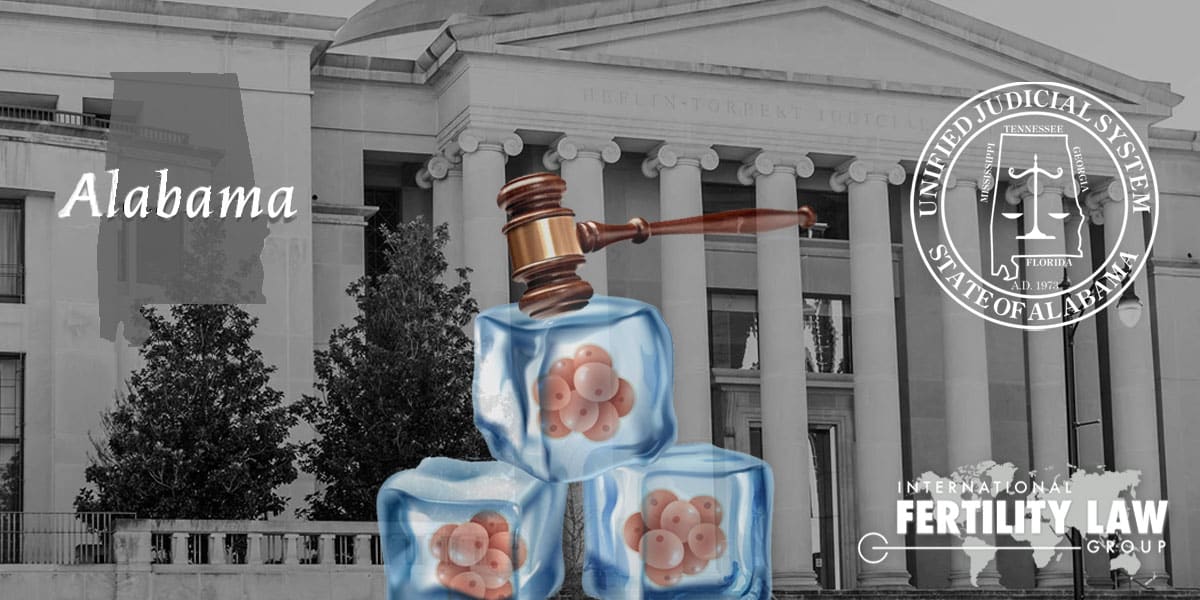
20 Feb 2024 IFLG Joins ASRM & Resolve Condemning Alabama Supreme Court Ruling Embryos As Children
International Fertility Law Group (IFLG) joins The American Society for Reproductive Medicine and RESOLVE: The National Infertility Association in condemning the ruling by the Supreme Court of Alabama in LePage v. Mobile Infirmary Clinic, classifying embryos as children. This ruling not only not only flies in the face of established legal precedent but also ignores the medicine and science about what is possible with a non-implanted cryopreserved pre-embryo, setting a severely misguided precedent that threatens reproductive rights and the accessibility of crucial reproductive technologies such as in vitro fertilization (IVF).
The question in the case was whether Alabama’s wrongful death statute applies to IVF frozen embryos. The case was brought by three patient families against the Center for Reproductive Medicine after another patient reportedly gained unauthorized access to the freezer and removed and dropped five embryos, rendering them unusable. The trial court had dismissed the case on the grounds that an embryo formed through IVF technologies did not constitute a person under Alabama law (a conclusion similarly reached by other state courts in a handful of cryo tank failure cases and in quite a few embryo disposition cases over the last 3 decades where divorcing parents fought over who could use remaining embryos – generally classifying embryos not as persons but as a special class of property). Attorneys for the families argued that Alabama law recognizes fertilization (when sperm fertilizes an egg) as the moment when life begins, that the only distinction between implanted and frozen embryos is “location” and, therefore, the Alabama wrongful death statute should apply to allow a wrongful death claim against the clinic. Attorneys for the clinic argued, among other things, that cryopreserved pre-embryos are not covered under other provisions of Alabama law, including its homicide law, and should not be subject to the wrongful death statute.
First, it's crucial to remember that no other court in the United States has made such a sweeping and radical classification of cryopreserved pre-embryo as children. This decision by the Alabama Supreme Court stands alone in its departure from legal norms and principles. The lack of precedent underscores the extreme nature of this ruling and raises serious questions about its legitimacy and rationale.
Second, the court's reliance on Biblical references to support the classification of cryopreserved pre-embryos as children is deeply troubling. The courts are meant to uphold the law based on secular legal principles, not religious doctrine. By invoking religious beliefs to justify legal decisions, the Alabama Supreme Court is undermining the fundamental principle of religious neutrality enshrined in our system of laws.
Third, classifying cryopreserved pre-embryos as children has far-reaching implications, particularly for reproductive technologies like IVF. If embryos are legally considered children, then IVF procedures and embryo storage could potentially become unaffordable for many individuals and couples in Alabama and could also force the closure of IVF clinics and embryo storage facilities. This would not only deprive people of the opportunity to have children through assisted reproductive technologies but also infringe upon their reproductive autonomy and rights.
The Alabama Supreme Court's decision is part of a broader and dangerous effort to implement a Christo-fascist theocratic form of governance. This agenda seeks to erode the separation of church and state and use specific religious beliefs to determine policies and reform institutions, undermining the very foundation of the nation and the rights of religious and non-religious minorities alike.
Whether this is appealed to the Supreme Court of the United States remains to be seen. The plaintiffs’ arguments in this case echo unsuccessful efforts to grant personhood to embryos, in the Colorado case of In re Marriage of Rooks. In that case, after losing, the ex-wife petitioned the US Supreme Court to hear the case and decide the status of IVF embryos on a national basis. The Court declined to hear this in 2018. The makeup of the Court has changed dramatically since then, raising concerns of further restrictions on individual freedoms and reproductive rights.
IFLG will always stand for reproductive rights and individual freedom. We will provide further updates on this topic as they become available.

















